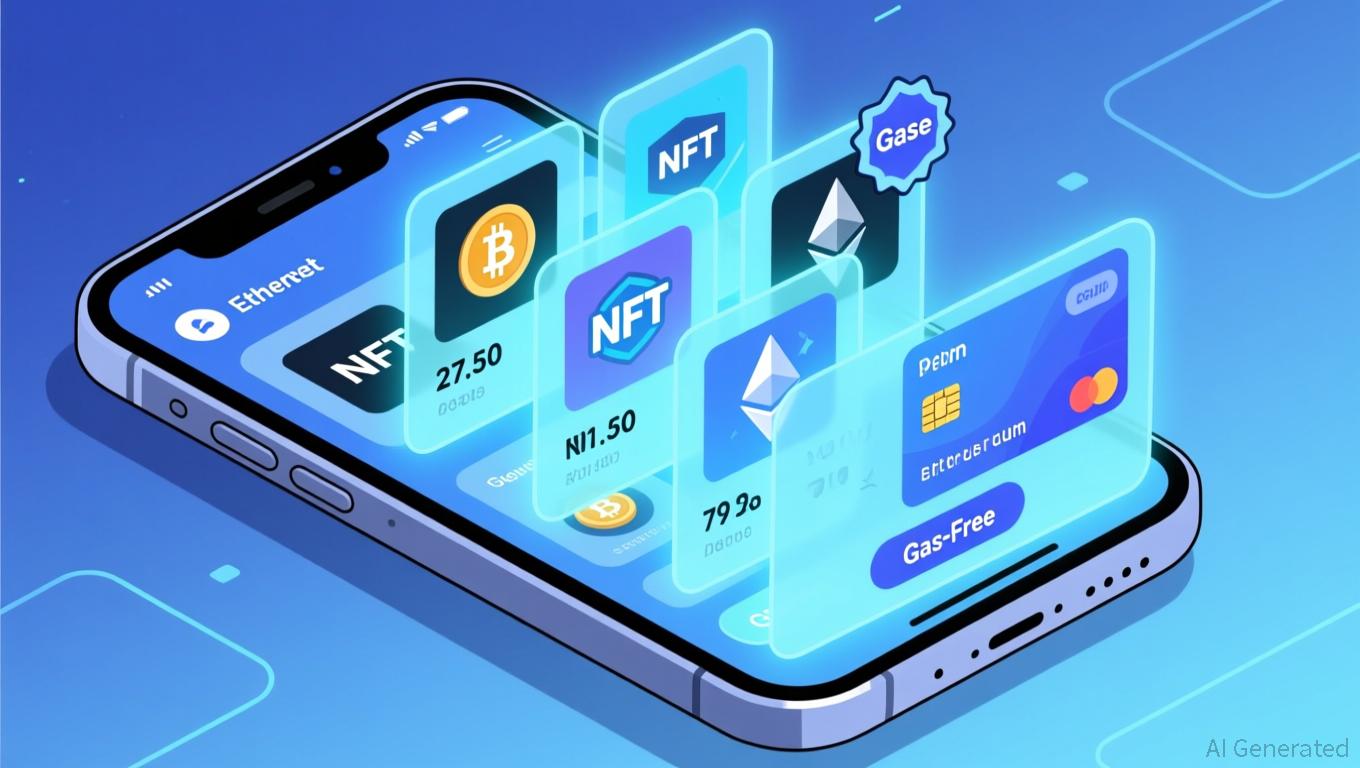U.S.-India Trade Agreement Strikes a Balance Between Strategic Interests and Energy Relations
- U.S. and India near trade deal to cut tariffs (15-16%) and reduce India's Russian oil imports, easing tensions. - Agreement aims to boost bilateral trade to $500B by 2030 while addressing U.S. concerns over India's Russian energy ties. - India seeks WTO-compliant steel/aluminum export terms, balancing U.S. strategic goals with its energy security priorities. - Deal could inject $250-350B liquidity globally, weakening the dollar and boosting crypto markets like Bitcoin .
Trade talks between the United States and India seem to be nearing a breakthrough, as President Donald Trump indicated that both nations are making headway toward a "fair deal" that could see tariffs lowered and tensions eased. During the swearing-in ceremony for U.S. Ambassador to India Sergio Gor, Trump mentioned that the two sides are "very close" to reaching a new agreement that would shift the current trade relationship, according to a
Despite steep tariffs, Indian exports to the U.S. have remained robust, rising 13.30% to $45.82 billion in the fiscal year’s first half, according to

Progress in the negotiations has been hampered by the U.S. government shutdown, which has led to staffing shortages and slower advancement, according to Scanx Trade. Nevertheless, both countries have completed five negotiation rounds since March, with Indian Commerce Minister Piyush Goyal describing the talks as "progressing well" even though some "sensitive issues" remain unresolved, as reported by a
At the same time, the potential agreement is drawing attention for its broader economic impact, especially on cryptocurrency markets. Experts believe that resolving the trade dispute, together with the expected conclusion of the U.S. government shutdown, could inject $250–$350 billion in liquidity into global markets, according to BeInCrypto. This influx, combined with lower trade friction, could weaken the U.S. dollar and lift risk assets such as
India’s shift away from Russian oil has been a central topic in the discussions. While India has cut back on purchases from Russia, it has not stopped them entirely—a point Trump has used to apply tariff pressure, as reported by
The next few weeks will be pivotal as both countries await official confirmation of the deal. For now, the U.S. and India are carefully weighing their options: Washington is looking to reduce its dependence on Russian energy and expand its economic reach in Asia, while New Delhi seeks advantageous trade terms without sacrificing its strategic independence, as reported by Cryptopolitan. The results could have far-reaching effects on not just U.S.-India relations, but also on global trade and financial markets, as observed by BeInCrypto.
Disclaimer: The content of this article solely reflects the author's opinion and does not represent the platform in any capacity. This article is not intended to serve as a reference for making investment decisions.
You may also like
Zero-Knowledge Startup Secures $9M Funding, Introduces Gamified Verification to Bridge Privacy and Compliance
- Zero-knowledge identity protocol Self raised $9M in seed funding led by Greenfield Capital and SoftBank's fund, alongside angel investors like Casey Neistat and Polygon's Sandeep Nailwal. - The startup launched a points program incentivizing on-chain identity verification using ZKPs and verifiable credentials, partnering with Google , Aave , and Velodrome to bridge privacy-compliance gaps. - By enabling biometric passport verification and Aadhaar integration without exposing sensitive data, Self aims to
Gavin Wood Supports Acurast’s Decentralized Computing Revolution Driven by Smartphones
- Acurast, a smartphone-based decentralized computing project, secured $11M in funding led by Ethereum co-founder Gavin Wood and others. - The platform launched its mainnet on November 17, aiming to transform 150,000 smartphones into secure compute nodes for confidential tasks. - By leveraging hardware-backed security and eliminating intermediaries, Acurast challenges traditional data centers while addressing privacy and environmental concerns. - Despite scalability challenges, the project's 494 million pr

Crypto wallets are transforming into comprehensive platforms, connecting Web3 with traditional financial services
- D'CENT Wallet's v8.1.0 update enables multi-wallet management for up to 100 accounts, streamlining digital asset handling across investment, NFTs, and events. - Competitors like Exodus and Blaqclouds advance crypto adoption through features like Mastercard-linked debit cards and decentralized identity systems with biometric security. - Innovations such as fee-free transactions (D'CENT GasPass) and on-chain identity management (.zeus domains) highlight industry focus on accessibility and security for main

Grayscale's Public Listing: Advancing Crypto Adoption as Regulations Vary Worldwide
- Grayscale files U.S. IPO via S-1, joining crypto firms like Circle and Bullish in public markets. - IPO details remain undetermined, contingent on SEC review and market conditions. - Japan's TSE tightens crypto listing rules amid volatile "crypto hoarding" stock collapses. - U.S. regulators advance crypto rulemaking post-shutdown, potentially accelerating Grayscale's approval. - Grayscale's IPO highlights crypto's institutional push amid global regulatory divergence.
